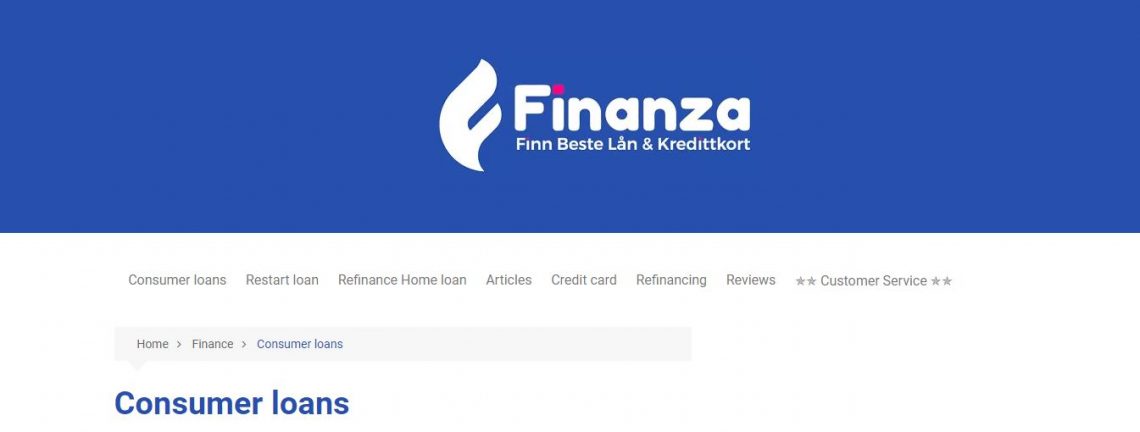
Consumer Loans Explained
Investing in consumer loans is a great way to boost your financial outlook. However, consumers need to be careful before taking out any loan. The interest rate on such a loan can be high, so it is important to check the terms before you sign on the dotted line. Ensuring you find a trusted credit institution representative in your country is the key to getting a consumer loan to suit your needs. If you are Norweigan, you can search for søk forbrukslån for best results.
The best way to find out if you qualify for a loan is to visit a local credit institution and speak with a representative. You will be able to learn about the various types of consumer loans available to you and which is the best option for your needs.
Typically, the interest rates for a consumer loan will be higher than the rates for other types of loans. You should also consider the duration of your loan. You will want to make sure that you are paying back your loan on time. If you don’t, you could end up with a significant penalty.
The most popular type of consumer loan is the credit card. It is a form of lending that allows you to buy everyday necessities such as groceries and gas. The rate of interest is generally much higher than a regular loan, but the amount you borrow is typically much smaller. Using a credit card can have a negative impact on your credit score, so it’s a good idea to pay off your balance as soon as possible.
Another popular consumer loan is the refinance loan. This loan is used to refinance an existing loan, which can have a lower interest rate than a standard loan. Many consumers are unable to purchase a home or a car without a consumer loan. The most common down payment plan is between one and fifteen years. You can modify or extend this plan if you can afford to.
The Federal Reserve System is a government agency that regulates the supply and level of interest rates. Besides the Federal Reserve System, other organizations such as the IRS may also influence your monetary strategy.
For most lending needs, consumer loans are the best option. They offer a variety of benefits to borrowers, including high liquidity, short down payment periods, and financial flexibility. In addition, they can be easily funded by a variety of sources. You can get started with a consumer loan by contacting your local credit institution or by visiting a merchant store that offers consumer loans.
Depending on your personal preferences, you may be interested in a secured or unsecured consumer loan. Secured loans are backed by collateral, so your lender has a better chance of recovering the money should you default on your loan. Alternatively, an unsecured loan is based on the monetary value of the loan. The length of the loan and the amount borrowed will determine the interest rate.
Consumer loans are a good way to finance purchases such as a home, car, or even a vacation. If you have a good credit history, you will have a better chance of receiving a green card.
How to Apply For a Consumer Loan
Whether you need to borrow money for a vacation or other personal expenses, applying for a consumer loan is a smart way to get the funds you need. With a consumer loan, you will receive the funds you need for a specific purpose, but you will have to pay back the loan over a period of time. Interest rates and terms vary based on the type of loan you are seeking.
The information that you provide on a consumer loan application will help the lender make an underwriting decision. You will need to answer questions about your income, employment history, and other background information. This information will help the company determine whether or not you can pay back the loan. Your credit score and debt-to-income ratio will also have an impact on the amount of financing you are granted. You may have to provide additional documentation as well. For instance, you may be asked to produce tax returns or W-2s, and a copy of your driver’s license or Social Security card.
In addition, a consumer loan application form will ask you to indicate whether you would like to obtain a loan for a specific amount. You will also be asked to indicate the purpose of the loan. You will also be asked to specify the collateral you intend to use as collateral for the loan.
A consumer loan is generally a secured loan. This means that you will need to put up some of your assets, such as your home, as security for the loan. If you do not repay the loan, the lender can liquidate the assets to recover the money they are owed.
If you have no credit, you will have to find a co-signer to help you get a consumer loan. The co-signer can be a family member, a friend, or another reliable person. If you can’t find a co-signer, you can offer a larger down payment. This will show your lenders that you can pay the loan back on time.
If you are looking for a consumer loan, you should contact your local credit institution. These institutions usually have a representative who will guide you through the application process. You should also review your pre-approval letters before making a final decision on your loan.
You can also use a consumer loan application form to streamline the process of preparing documents. A form can be easily customized and saved, and it can be filled out in a matter of minutes. This is a convenient way to save time and money.
A consumer loan is a form of loan that requires you to pay back the principal plus interest. It can be either a secured or unsecured loan. A secured loan will generally have a lower interest rate. It will also have a longer repayment period. An unsecured loan will have a higher interest rate. It is important to understand how a loan works so that you can avoid any negative consequences.
Pros and Cons of Consumer Loans
During the 2008-2009 economic crisis, consumer loans continued to show an advantage over other loan products. The return on these loans was much higher than on mortgage loans, which were generally considered safer during the recession. But the rate of default increased during the crisis, and a large percentage of consumers were caught up in this situation.
When compared to credit cards, the most common financial product for consumers, consumer loans are also less flexible. You can only borrow as much as you can afford to repay, so if you have a high debt load, you can’t take out a new loan without sacrificing some other assets. Similarly, unsecured loans often have high interest rates, which will add to the debt you already have.
Some people use credit in a reckless manner, and this can cause a lot of problems. The debt-to-income ratio is one of the most important factors that lenders look at when deciding how much additional debt you can take on. If your debts are too large, you may be forced to declare bankruptcy. But if you only have a few thousand dollars in debt, you can probably pay off the balance without declaring bankruptcy.
There are many tricks that lenders use to trap consumers into paying high-cost debt. Most of these aren’t obvious to the uninitiated, but they’re all designed to trap you into a life of high-cost debt. For example, if you buy furniture with a loan, you won’t be able to get your furniture back if you miss a payment. If you rent your furniture, you could be repossessed if you don’t make payments.
Another trick that creditors use is the caveat emptor model. This refers to the concept that markets produce value for both borrowers and lenders. However, the model ignores the success of the consumer goods market.
If you are considering taking out a credit card, you should make sure you know exactly how the loan will work. In addition, you should read up on the collection process. You should also avoid high-pressure sales tactics. And, of course, you should never lie about your income.
Credit cards are a popular consumer product, and they are easy to use. Most people understand that it’s a good idea to read up on them before applying. But you shouldn’t be afraid to ask questions, especially about the fees. Be wary of fees that are more than 3% of the total loan amount. If you do not have the funds available to cover the full loan, you should request a longer repayment period.
You should also be aware that some lenders charge higher interest rates than payday loan lenders. Regardless of whether you are borrowing money for a car, a house, or a college education, you should read up on your lender’s policies before settling on a loan. Similarly, you should avoid signing any contract that is blank, or includes an early repayment penalty.
A consumer loan is a good investment, but only if you have the means to repay it. If you are in financial trouble, you can always apply for a personal guarantee. It can help you get out of debt, and can also make you less vulnerable to bankruptcy.




